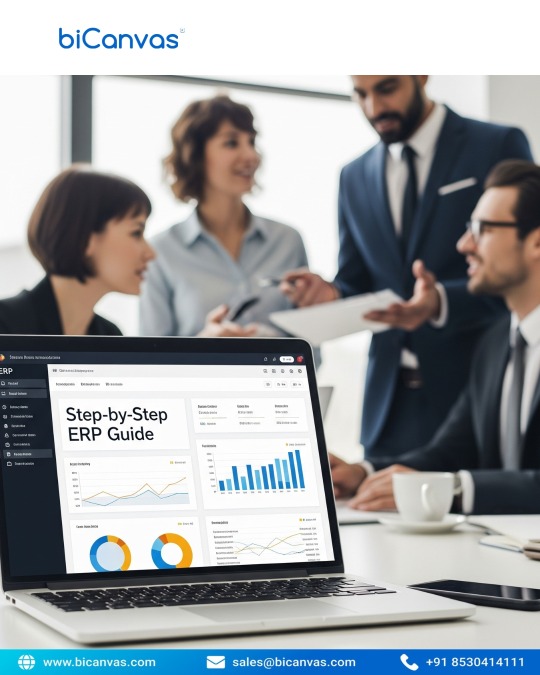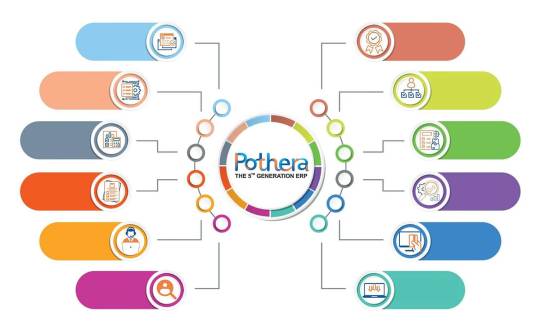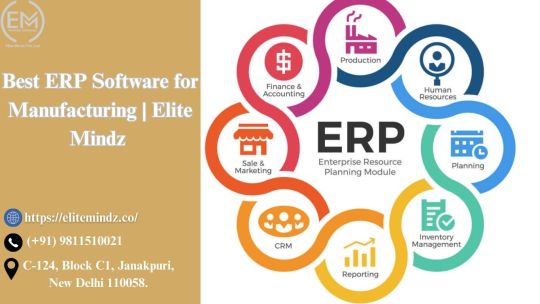#ERP for Manufacturing
Explore tagged Tumblr posts
Text
2 notes
·
View notes
Text
ERP Software for manufacturing is specifically designed to offer advanced manufacturing functionalities, visibility & control over the manufacturing business
4 notes
·
View notes
Text

#cloud erp#erp development company#erp construction#erp services#erp implementation#erp software#erp solutions provider#erpmodules#software#erp for manufacturing
0 notes
Text
#erp#erp software#erp system#erp implementation#erp solutions#cloud erp#erp integration#erpsolutions#erp for manufacturing#erp development company
0 notes
Text
The Importance of ERP Software in Modern Business Operations
One of the greatest advantages of ERP software is increased productivity. Routine tasks like payroll processing, inventory tracking or order management can be automated to free up employees to focus on higher-value activities that improve operational efficiency while increasing employee morale and decreasing human error. For instance, using ERP Software can automate procurement to ensure stock levels remain at optimal levels without overordering, leading to cost savings and resource optimization.

1 note
·
View note
Text
Best ERP for Manufacturing: Streamline Your Production with Smart Solutions
Introduction
In today’s competitive landscape, manufacturing companies face challenges like rising operational costs, supply chain disruptions, and inefficient production cycles. To stay ahead, embracing technology is no longer optional—it’s essential. This is where the best ERP for manufacturing steps in. An efficient Enterprise Resource Planning (ERP) system can transform your production floor by automating workflows, managing resources, and improving visibility across departments.
Let’s explore why choosing the right manufacturing ERP software is crucial and how it can redefine your business operations.
Why Manufacturers Need ERP Software
Manufacturing businesses rely heavily on data accuracy, inventory control, and streamlined processes. Without a centralized system, managing these factors becomes chaotic. ERP software integrates all business functions—from procurement and production to sales and finance—under one platform.
Key benefits of ERP in manufacturing:
Real-time data tracking
Better inventory and warehouse management
Optimized supply chain planning
Reduced operational costs
Enhanced decision-making through business intelligence
Top Features to Look for in Manufacturing ERP Software
To find the best ERP software for manufacturing, make sure it includes:
Production Planning & Control Automates scheduling and ensures resource availability.
Inventory Management Real-time stock levels, automated reordering, and batch tracking.
Quality Control Maintains consistent product standards and compliance.
Bill of Materials (BOM) Supports multi-level BOMs for complex manufacturing needs.
Shop Floor Control Tracks labor, machines, and production stages in real time.
Reporting & Analytics Actionable insights for faster, smarter decisions.
Integration Capabilities Seamless integration with CRM, HR, and accounting systems.
Why Odoo is the Best ERP for Manufacturing
Among the top contenders in the market, Odoo ERP stands out as a powerful, open-source solution tailor-made for manufacturing companies. Whether you're a small unit or a large-scale operation, Odoo’s modular structure offers scalability and customization at a fraction of the cost compared to traditional ERP systems.
Key Advantages of Odoo Manufacturing ERP:
Fully integrated with inventory, accounting, HR, and CRM
Supports real-time production tracking
Offers automated maintenance and quality checks
Mobile-friendly for shop floor usage
Affordable and flexible licensing
Industries Benefiting from Manufacturing ERP
Whether you operate in automotive, textile, machinery, or food processing, a robust ERP system like Odoo can drive measurable growth. It's also ideal for businesses looking for cloud ERP solutions or those exploring ERP for SMEs in manufacturing.
Choosing the Right ERP Implementation Partner
An ERP is only as good as its implementation. Collaborate with a trusted ERP software company that understands your industry, offers customized solutions, and provides long-term support.
Look for:
Industry-specific experience
Proven case studies
Post-implementation training & support
Conclusion
The best ERP for manufacturing doesn’t just improve your operations—it transforms them. By investing in a smart ERP system like Odoo for manufacturing, you unlock the power of automation, integration, and data-driven decisions. Whether upgrading from spreadsheets or replacing legacy software, now is the time to digitize your manufacturing process.
✅ Ready to Elevate Your Manufacturing Process?
Banibro IT Solutions specializes in Odoo ERP implementation tailored to manufacturing industries. Our experts will guide you from consultation to deployment—ensuring you get the best out of your ERP investment.
📞 Contact us today for a free demo or consultation.
0 notes
Text
Smarter ERP for Every Manufacturing Company
Looking for a reliable ERP for manufacturing company operations? QT9 ERP offers cloud-based solutions for inventory, production, and quality control—ideal as an ERP for small manufacturing business looking to scale efficiently and stay compliant.
0 notes
Text
0 notes
Text
Top 10 Benefits of ERP Software for the Manufacturing Sector

The manufacturing sector is rapidly evolving, and staying competitive means embracing technology that streamlines operations and drives efficiency. One of the most powerful tools available to manufacturers today is ERP software for the manufacturing industry.
But how does it help? Let’s explore the top 10 benefits that ERP systems bring to the table for manufacturing businesses, and how these advantages can transform your operations.
1. Streamlined Operations
One of the primary reasons manufacturers turn to ERP software is to streamline their operations. Whether it’s managing production schedules, inventory levels, or order processing, ERP software for the manufacturing industry integrates all these functions into one unified system. This means less time spent on manual tasks and more focus on optimizing production efficiency.
2. Improved Inventory Management
Tracking raw materials, work-in-progress, and finished goods can be a challenge. ERP software simplifies this by providing real-time inventory tracking, automatic reorder alerts, and forecasting tools. You’ll reduce the risk of stockouts, overstocking, and wastage, leading to more efficient inventory management.
3. Better Data Accuracy and Reporting
Manual data entry is prone to errors, but with ERP software, data is automatically captured and updated in real-time. This leads to more accurate reporting, which is crucial for decision-making. Manufacturing businesses can access insightful reports, such as production trends, financial performance, and supply chain metrics, all from one system.
4. Enhanced Supply Chain Management
ERP software integrates your supply chain processes, helping manufacturers coordinate with suppliers, track deliveries, and manage lead times. It can even suggest improvements to your supply chain, helping you reduce costs and improve delivery times.
5. Cost Control and Financial Management
Managing costs is essential for manufacturers to stay profitable. ERP systems provide tools for budgeting, cost tracking, and financial reporting, ensuring that you can stay on top of your financials. With real-time access to your financial data, you can quickly identify areas where you can reduce costs and improve margins.
6. Increased Production Efficiency
Manufacturers often face challenges like production delays and bottlenecks. ERP software helps monitor production processes in real-time, allowing you to identify inefficiencies and address them before they become bigger problems. With real-time data on machine usage, labor productivity, and material consumption, you can optimize workflows and boost efficiency.
7. Regulatory Compliance and Traceability
The manufacturing sector is subject to various regulations, especially in industries like food, pharmaceuticals, and automotive. ERP software helps ensure that you stay compliant with industry standards by tracking quality control processes, product certifications, and environmental regulations. You’ll be able to produce accurate reports for audits, reducing the risk of non-compliance.
8. Improved Customer Service
A key benefit of ERP software is the ability to better manage customer orders. By automating order processing, tracking, and invoicing, manufacturers can reduce lead times and provide more accurate delivery dates to customers. This leads to improved customer satisfaction and stronger relationships.
9. Scalability and Growth
As your manufacturing business grows, so does the complexity of operations. ERP software is designed to scale with your business, accommodating new locations, increased production volume, and new product lines without disrupting operations. The right ERP system can grow alongside your business, supporting expansion and helping you manage new challenges.
10. Better Decision-Making and Forecasting
With all your data in one place, ERP software helps manufacturers make informed decisions. Advanced analytics tools and forecasting features allow businesses to predict future trends, set realistic production goals, and make data-driven decisions. Whether it’s forecasting demand or managing seasonal fluctuations, ERP software provides the insights needed for smarter decision-making.
Conclusion
For manufacturers looking to optimize their operations, improve efficiency, and stay competitive, ERP software for the manufacturing industry is an essential tool. From streamlining inventory management to improving production efficiency and ensuring regulatory compliance, the benefits of ERP systems are clear. By adopting ERP software, manufacturers can future-proof their business and unlock new growth opportunities.
If you’re ready to take the next step in transforming your manufacturing business, consider implementing an ERP solution tailored to your needs.
0 notes
Text
The Complete CRM Guide to Choosing the Right CRM for your Business in 2025

Why 2025 Demands Smarter Systems
As businesses accelerate toward digital maturity, the distinction between operational efficiency and customer satisfaction is blurring. A well-integrated ERP (Enterprise Resource Planning) and CRM (Customer Relationship Management) system is no longer a corporate luxury — it’s a business necessity.
In 2025, agility, automation, and data-driven decision-making are the gold standards. Whether you’re an ambitious startup or an established enterprise, selecting the right ERP and CRM can define your growth trajectory.
This comprehensive guide will walk you through everything you need to know about choosing the right ERP and CRM for your business, backed by insights from top-tier ERP Software Development Companies and CRM Software Development Companies.
Understanding ERP & CRM in the Modern Context
What is ERP?
Enterprise Resource Planning (ERP) is a suite of integrated applications designed to automate and streamline core business processes like finance, HR, inventory, procurement, and manufacturing.
What is CRM?
Customer Relationship Management (CRM) focuses on managing customer interactions, improving sales processes, marketing automation, and delivering exceptional customer support.
Together, ERP and CRM provide a 360-degree view of your organization, enhancing internal efficiency and external engagement.
Why Choosing the Right System Matters in 2025
Increased competition means businesses must be nimble.
Remote and hybrid work require cloud-based, accessible systems.
AI and automation are redefining workflows and customer journeys.
Data privacy regulations are tighter than ever.
Choosing an outdated or ill-suited system can stall your growth, frustrate users, and waste resources.
ERP for Startups vs Enterprises
ERP for Startups
Startups benefit from modular, scalable ERP systems. These systems offer just what you need to get started and scale as you grow. Look for:
Cloud deployment
Easy integration with existing tools
Real-time analytics
Affordable pricing
ERP for Enterprises
Enterprises demand robust, customizable ERP platforms. Features to consider include:
Advanced financial management
Supply chain optimization
Custom reporting
Role-based access controls
Top ERP Software Development Companies understand how to tailor solutions based on business size and industry
CRM for Startups vs Enterprises
CRM for Startups
Startups thrive on speed and relationships. Ideal CRM systems offer:
Lead tracking and scoring
Marketing automation
Email and social media integration
Mobile access
CRM for Enterprises
Larger businesses require deeper functionality:
Multi-channel support
Sales forecasting
Customer segmentation
Integration with ERP and BI tools
Must-Have Features in 2025
For ERP:
AI-powered forecasting
IoT integration (for manufacturing)
Blockchain for secure transactions
Custom dashboards
For CRM:
AI chatbots and virtual assistants
Real-time customer insights
Omnichannel communication
GDPR/CCPA compliance tools
Cloud vs. On-Premise ERP/CRM
Cloud Benefits:
Lower upfront cost
Faster deployment
Anywhere access
Automatic updates
On-Premise Benefits:
Full data control
Custom hosting environments
Higher initial cost but lower over time
Industry-Specific ERP/CRM Insights
Manufacturing
ERP for Manufacturing should include supply chain, production scheduling, and quality control.
CRM for Manufacturing should facilitate client relationship building through B2B tools and service tracking.
Retail
Inventory and POS integration
Customer loyalty tracking
Healthcare
Scheduling and compliance features
Patient engagement and EHR integration
Finance
Fraud detection
Regulatory reporting tools
Budgeting Considerations
Beyond licensing fees, consider:
Implementation and consultation
Training and onboarding
Customization and development
Annual support and maintenance
Start with essential modules and scale as ROI grows.
Integration with Existing Tools
Ensure your new ERP/CRM works seamlessly with:
Accounting systems
eCommerce platforms
HR management tools
Business Intelligence dashboards
Data Security and Compliance
By 2025, compliance is a cornerstone of IT strategy. Prioritize:
Role-based access control
End-to-end encryption
Data localization options
Built-in GDPR/CCPA modules
Implementation Best Practices
Set clear goals and KPIs before kickoff.
Appoint internal champions.
Avoid over-customization early on.
Train users in phases.
Conduct regular performance reviews post-launch.
Measuring Success and ROI
Evaluate ROI through:
Cost savings (manual vs. automated processes)
Sales growth
Customer satisfaction
Productivity metrics
Compliance benchmarks
A well-implemented ERP/CRM system delivers measurable returns within 6–12 months.
Make the Right Move in 2025
In a landscape driven by agility and digital fluency, ERP and CRM systems act as the operational and strategic command centres of modern business.
Whether you’re a fast-growing startup or a global brand, your investment in technology must reflect your ambition. Partnering with the right ERP Software Development Company or CRM Software Development Company is not a mere transaction — it’s a strategic alliance.
Choose wisely. Scale boldly.
#ERP Software Development Company#CRM Software Development Company#ERP for Manufacturing#CRM for Manufacturing
0 notes
Text

Best ERP Software for Manufacturing
0 notes
Text
#Implementing ERP Software#ERP Software Implementation#erp implementation#ERP System Implementation#ERP Software#erp system#erp consulting#erp integration#erp#businesssolutions#erp services#cloud erp#retail erp software#erp for manufacturing
0 notes
Text
#cloud erp#erp construction#erp implementation#erp services#erp development company#erp solutions provider#erp software#erpmodules#software#erp for manufacturing
0 notes
Text
#erp#erp software#erp system#erp implementation#erp solutions#cloud erp#erp integration#erpsolutions#erp for manufacturing#erp development company
0 notes
Text
Odoo ERP for Manufacturing Industry
🏭 Manufacturers—streamline your operations with Odoo ERP!
From production planning to inventory management and real-time reporting, Odoo gives you full control of your manufacturing process — all in one platform.
✅ Boost productivity ✅ Minimize downtime ✅ Reduce waste & costs ✅ Get real-time insights for smarter decisions
Looking to digitize your factory floor? Our team specializes in implementing Odoo ERP tailored for the manufacturing industry.
🔧 Explore how we can help: https://www.candidroot.com/odoo-manufacturing-erp
#odoo#odoo erp#erp for manufacturing#manufacturing excellence#smart factory#industry 40#digital manufacturing#erpsoftware#erp system
0 notes
Text
Why Cloud ERP Systems Are a Game-Changer for Small Businesses
In today’s digital-first economy, small businesses need more than spreadsheets and disconnected software to manage operations efficiently. Cloud ERP systems for small businesses offer affordable, scalable, and integrated solutions that were once accessible only to large enterprises.
If you're a small business owner looking to streamline operations, cut costs, and boost productivity, cloud ERP might be your smartest investment.
What is a Cloud ERP System?
A cloud ERP (Enterprise Resource Planning) system is a software solution hosted on remote servers that allows businesses to manage core processes like accounting, inventory, CRM, HR, and sales from a centralized platform — all via the internet.
Unlike traditional on-premise ERP systems, cloud-based ERPs are maintained by the service provider, eliminating the need for in-house IT infrastructure and reducing upfront investment.
Key Benefits of Cloud ERP for Small Businesses
1. Cost-Effective & Scalable
One of the biggest advantages for small businesses is cost-efficiency. Cloud ERP eliminates hardware costs and allows for flexible subscription pricing models. As your business grows, the system scales with you — no major reinvestment required.
2. Anywhere, Anytime Access
With cloud ERP software, you can manage your business from anywhere. This is especially beneficial for remote teams, sales reps on the move, or owners managing multiple branches.
3. Faster Implementation
Unlike traditional ERP systems, cloud ERP solutions can be implemented quickly — often in a matter of weeks — allowing you to focus on operations instead of IT headaches.
4. Automatic Updates & Data Security
Your provider ensures the system is always up-to-date with the latest features and security patches. With built-in data backup and encryption, you can operate confidently without worrying about data loss or cyber threats.
5. Real-Time Insights
From financial dashboards to inventory reports, cloud ERP provides real-time data and analytics — empowering informed decision-making and improved business performance.
Features Small Businesses Should Look for in a Cloud ERP
Integrated Accounting Software
Inventory Management
Customer Relationship Management (CRM)
Sales and Purchase Management
HR and Payroll Modules
Mobile Accessibility
Customization Capabilities
Third-party Integrations (e.g., eCommerce, POS)
Top Industries Benefiting from Cloud ERP Systems
Many industries have seen transformative results from adopting cloud-based ERP systems, including:
Retail businesses: Real-time stock control, POS integration, and multi-store management.
Manufacturing SMEs: Production planning, supply chain automation, and bill of materials tracking.
Service-based firms: Efficient time tracking, project management, and customer support.
E-commerce: Seamless integration with platforms like Shopify, WooCommerce, and Magento.
Distribution & logistics: Automated warehousing, route planning, and delivery tracking.
Best Cloud ERP Solutions for Small Businesses
Here are some widely used and trusted cloud ERP platforms ideal for small businesses:
1. Odoo ERP
An open-source and modular ERP that’s perfect for small to mid-sized businesses. With apps covering everything from sales and inventory to HR and accounting, Odoo cloud ERP is flexible, affordable, and easy to use.
2. Zoho ERP
Known for its user-friendly interface and integration with the Zoho suite, this ERP works well for businesses with simpler needs.
3. SAP Business One Cloud
Designed specifically for small to midsize enterprises, offering powerful features with cloud flexibility.
4. NetSuite ERP
An Oracle-powered ERP ideal for growing businesses that want full control of financials, CRM, and supply chain operations in one platform.
Why Small Businesses Are Moving to Cloud ERP
With increased competition, tight margins, and limited resources, small businesses can’t afford inefficiency. A cloud ERP system for small enterprises ensures all departments work in harmony, processes are automated, and owners have the insights they need to grow.
Plus, modern ERP implementation partners offer tailored solutions, ensuring small businesses get the most out of their ERP investment without overcomplicating things.
Final Thoughts
Adopting a cloud ERP system isn't just a tech upgrade — it’s a strategic move that can help small businesses streamline workflows, enhance collaboration, and drive long-term success.If you're ready to digitally transform your business, Banibro IT Solution offers custom Odoo cloud ERP solutions tailored for small and growing enterprises. Get in touch with our ERP experts for a free consultation today!
0 notes